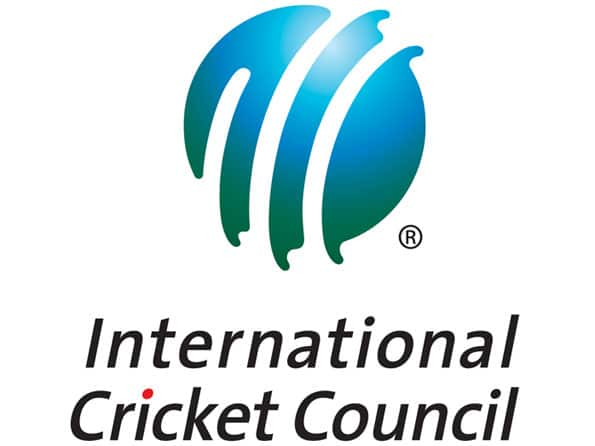
Cricket Country Staff
Editorial team of CricketCountry.
By CricketCountry Staff
The ICC Intercontinental Cup has quickly grown in stature and profile since its inception seven years ago. The ICC's premier first-class tournament is an integral part of the Associate Members' cricket schedule.
Written by Cricket Country Staff
Published: Sep 05, 2011, 11:10 PM (IST)
Edited: Sep 05, 2011, 11:10 PM (IST)


There will be a total of US$254,000 in prize money for the Associate and Affiliate teams taking part in the ICC Intercontinental Cup 2011
By CricketCountry Staff
Dubai: Sep 6, 2011
The ICC Intercontinental Cup has quickly grown in stature and profile since its inception seven years ago. The ICC’s premier first-class tournament is an integral part of the Associate Members’ cricket schedule.
There will be a total of US$254,000 in prize money for the Associate and Affiliate teams taking part in the ICC Intercontinental Cup 2011-13 with US$100,000 for the winners and US$40,000 for the runners-up.
Teams finishing in third and fourth place with receive US$20,000 and US$10,000 respectively while an outright win by any team during the course of the round-robin stage will see it walk away with US$3,000 per match.
Having previously been designed around a two-group, three-day format, the event then evolved into an eight-team, round-robin and truly global tournament featuring four-day cricket which gives those teams who do not play Test cricket the chance to experience the longer form of the game.
This year’s format will include eight teams – Afghanistan, Canada, Ireland, Kenya, Netherlands, Scotland, Namibia and United Arab Emirates.
Scotland won the first ICC Intercontinental Cup in 2004, beating Canada in the final, while Ireland has been victorious in three events since then, beating Kenya in the 2005 decider, Canada in the 2006-07 event, Namibia in 2007-08 while in 2009-10 Afghanistan won the competition.
Kenya will travel to the Netherlands to face the Dutch side in its second-round fixture in Deventer which begins on 7 September.
Canada will travel to Dublin to face Ireland in its second round of the Intercontinental Cup next week when the sides face-off from 13 to 16 September.
Squads and match officials for Netherlands v Kenya, Second Round Intercontinental Cup, 7 to 10 September, Deventer
Netherlands (squad): Peter Borren (captain), Wesley Barresi, Mudassar Bukhari, Atse Buurman, Wilfred Diepeveen, Tom de Grooth, Tim Gruijters, Tom Heggelman, Stephan Myburgh, Ahsan Malik, Pieter Seelaar, Michael Swart, Eric Szwarczynski, Vinoo Tewarie
Kenya (squad): Collins Obuya (captain), Rakep Patel, Tamnay Mishra, Lameck Ngoche, Irfan Karim, Duncan Allan, Emmanuel Ringera, Ibrahim Akello, Lucas Ndandason, Hiren Varaiya, Runish Gudhka, David Obuya, Seren Waters, Dominic Wesonga
Umpires: Ian Ramage a of the ICC Associates and Affiliates Umpires’ Panel and Johan Cloete of the Emirates International Panel of ICC Umpires.
Match referee: David Jukes
Squads and match officials for Ireland v Canada, Second Round Intercontinental Cup, 13 to 16 September, Leinster
Ireland (squad): Kevin O’Brien (captain), Alex Cusack, George Dockrell, Phil Eaglestone, Nigel Jones, Graeme McCarter, John Mooney, Andrew Poynter, Stuart Poynter, Paul Stirling, Albert van der Merwe, Andrew White, Gary Wilson
Canada (squad): Jimmy Hansra, Harvir Baidwan, Usman Limbada, Hamza Tariq, Rizwan Cheema, Henry Osinde, Hiral Patel, Junaid Siddiqui, Zeeshan Siddiqui, Ruvindu Gunasekera, Khurram Chohan, Marinder Aulakh, Nitish Kumar, Zahid Hussain
Umpires: Niels Bagh and Mark Hawthorne of the ICC Associates and Affiliates Umpires’ Panel.
Match referee: David Jukes
This website uses cookies so that we can provide you with the best user experience possible. Cookie information is stored in your browser and performs functions such as recognising you when you return to our website and helping our team to understand which sections of the website you find most interesting and useful.
Strictly Necessary Cookie should be enabled at all times so that we can save your preferences for cookie settings.
If you disable this cookie, we will not be able to save your preferences. This means that every time you visit this website you will need to enable or disable cookies again.
